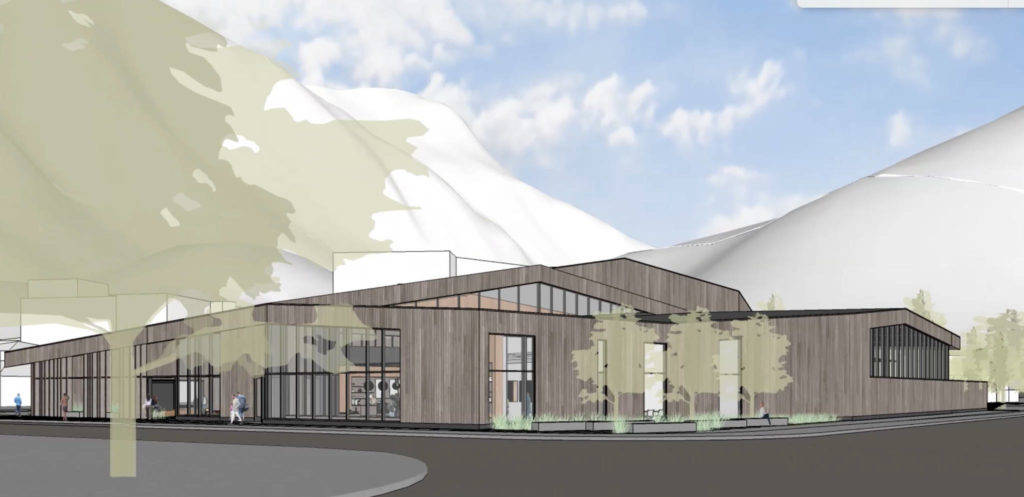Juneau has been a wonderful home base for many artists — including myself — during the 40 years I’ve lived here. But, unlike many other Alaskan communities, we haven’t ever truly had a home we can call our own, where visual artists, performing artists and this wonderfully supportive town can all come together.
I have worked on theatrical or musical events at Perseverance Theatre, Centennial Hall, most of our city’s schools, various bars and restaurants, several churches, the Elks’ Club, the VFW Hall, the Noyes Pavilion, Sandy Beach, an old hardware store, under a tarp at the UAS campus, and in a tent pitched on the downtown wharf. While all of these places have had their own unique charms, what has been so badly wanted is a center, a gathering place the community owns and respects and is proud of: A real home for the arts.
Communities worldwide are remembered and defined by their cultural and artistic monuments, whether they be the soaring spires of an Italian Renaissance palace or the soaring clan poles of a traditional Tlingit village. Haines has a great arts center. Sitka has two. And what do we have? A beat-up, old armory that has been lovingly bandaged together and heavily used by the Juneau Arts & Humanities Council and the people of our city. But it is worn out. Some people can’t even attend events there anymore because of their allergies to the pervasive mold and mildew. It’s been a center for a startling variety of artistic and community events, clearly showing the enormous need we have for such a place.
Now imagine the New JACC: a multi-use, dedicated building, functionally and architecturally beautiful, that can proudly take its place alongside the Alaska State Museum and the Walter Soboleff Center, two buildings that have greatly enriched our community.
JDHS and Thunder Mountain have great auditoria, but they — quite rightly — give priority to students. The churches are good for churches, the bars and restaurants for bars and restaurants. And as for tarps and performances on Sandy Beach, well, sooner or later, the smoke gets in your eyes.
Most arts projects come about because of patronage of one kind or another, whether it be from the de Medicis, an opposite clan or a government. A remarkable fact about the Old JACC is that it has actually been self-sustaining, sometimes profitable. A McDowell Feasibility Study of the New JACC shows it in the black after three years of operation with an annual profit of $50,000. And this isn’t even counting an immersive summer experience for tourists that could greatly increase that. There have been and will no doubt continue to be naysayers who challenge the findings of the highly respected, neutral McDowell Group, but significantly they haven’t offered any research of their own. They argue that the arts are not a necessity, but some kind of luxury. I maintain that the arts are, in fact, an absolute human necessity, dating all the way back to when our ancestors painted images on cave walls.
The New JACC needs a boost from the people of Juneau. It’s only asking for about 20 percent of its cost, to be paid using sales tax revenue already in the coffers. The rest will come from grants, endowments, businesses, individuals. The arts aren’t free, any more than schools or hockey rinks or fire departments are free.
40,000 people walked through the doors of our old armory last year. Many more than that will come to the new JACC. Juneau has been rated an incredible No. 6 in the USA for its creativity index by the Western States Arts Foundation. That’s incredible! We are known throughout the state as not only the government capital, but the arts capital. I believe our new JACC will be an enormous source of pride for our dynamic and creative community.
Surely it’s time we gave the arts a home of their own.
• Dave Hunsaker is a writer. In 1985 he received the Governor’s Award for the Arts, and in 2014 was given an Honorary Doctorate from the University of Alaska, Southeast. He is an adopted member of the Lukaax.ádi (Sockeye) Clan of the Tlingit Nation.
• My Turns and Letters to the Editor represent the view of the author, not the view of the Juneau Empire.

